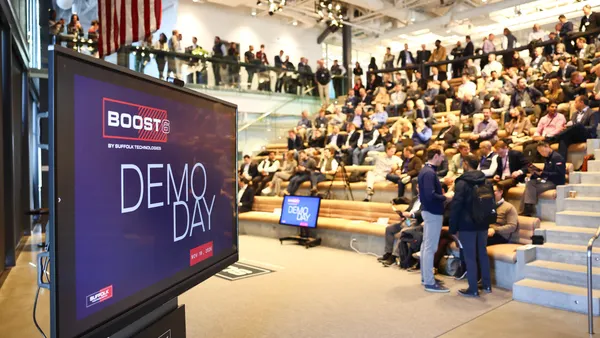Dive Brief:
- An International Code Council (ICC) and American Society of Civil Engineers (ASCE) lawsuit is taking aim at UpCodes, a startup that aims to make code compliance easier for architects and construction professionals through a free, searchable database of regulations and accompanying tools.
- The UpCodes platform pulls from open-source government websites, free code posted to the ICC’s website and scans of code books, which are a source of revenue for the council. The startup’s second product, UpCodes AI, is a BIM plug-in that runs a “spell check” for code requirements using this database.
- While UpCodes argues it is covered by the fair use doctrine — which permits some use of copyrighted material based on the purpose, amount of content and other criteria — the ICC alleges its copyright and ability to raise revenue is being infringed upon, TechCrunch reported. UpCodes and its two founders were served in September 2017.
Dive Insight:
Central to this lawsuit is the question of whether the law can be copyrighted, and due to its potential implications for compliance technology in other industries, the TechCrunch report suggested the case could eventually head to the Supreme Court.
The maze of regulations governing construction has been a drain on productivity for the industry. Architects, engineers and builders must identify the provisions that apply to their projects out of roughly 93,000 building codes used across U.S. counties and municipalities, according to a 2017 estimate from The Economist, and these codes are also frequently updated. Further, the number of codes that the industry must work through, according to McKinsey & Co., acts as a barrier to housing affordability.
UpCodes says it addresses these pain points by providing “free, unfettered access to the laws,” which it argues ICC has monopolized for financial gain. The ICC, on the other hand, says the startup’s profit model hampers the organization’s ability to make additional changes and ensure code quality.
A few lawsuits have set precedent that may work out in favor of UpCodes and its base of more than 200,000 monthly active users. When the Building Officials and Code Administration (BOCA) sued Code Technology in 1980 for publishing an edition of the Massachusetts building code BOCA authored, the First Circuit ruled that BOCA, which later merged into ICC, that it was “far from persuaded” that BOCA should be entitled to a “copyright monopoly.”
Another one of the three groups that merged into the ICC, the Southern Building Code Congress International, sued the man behind a website that posted photocopies of its code. Peter Veeck’s appeal following SBCCI’s district-level victory made it to the Fifth Circuit, where a judge ruled that “as law, the model codes enter the public domain and are not subject to the copyright holder’s exclusive prerogatives.”












